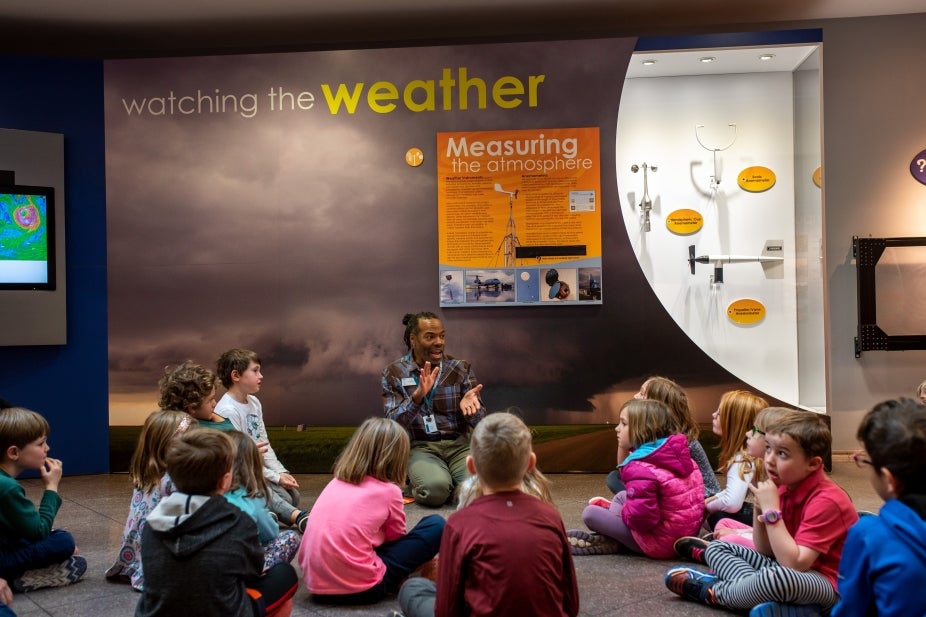The art of science communication: Engaging with communities at NSF NCAR
Science communication takes place in many ways, from research papers and presentations at conferences, to teaching school age kids or life long learners during a visit to the NSF NCAR Mesa Lab. It is an art that takes practice in order to provide an engaging and fun conversation between scientists, educators, and the general public.
In this NSF NCAR Explorer Series conversation, we speak with Tim Barnes, an Outreach and Training Specialist, who will talk about his career path into science education, the programs he’s excited about at NSF NCAR, and the new NSF NCAR 360 Virtual Visits.
Tim Barnes
Tim Barnes is an Outreach and Training Specialist in the UCAR Center for Science and Education (SciEd) with 25 years of experience in informal science education. In SciEd, Barnes delivers programs in Earth system science for a wide variety of audiences ranging from school groups to adult members of the general public, to government representatives. With the COVID-19 Pandemic, Barnes played a critical role in transitioning these programs to a virtual environment, including his work on the creation of the new NCAR 360 Virtual Visits.
After three years of training in the U.S. Navy to work in operational or intermediate level maintenance of F-14 weapons systems, Barnes completed his B.A. in Communication at the University of Colorado, Boulder. During his time both as an undergraduate and right after graduation, he was a research assistant in the Department of Child Clinical Psychology. There, Barnes worked with underserved first and second grade children at Denver area schools to improve their communication skills to help enhance their resilience to sociological stressors. The work included using biological measurements of variance in parasympathetic nervous system activity. That experience, along with his U.S. Navy advanced avionics technician training, places Barnes in a unique position to introduce human communication theory into SciEd’s collaborative style of interaction, alongside and with non-experts.
